- Home
- Patrick Robinson
Hunter Killer Page 22
Hunter Killer Read online
Page 22
It was this small but well-trained force that arrived in central Riyadh with the religious police on that Monday evening. Armed with light weapons and armored vehicles, they advanced on the crowd and drove them back.
But now the rioting populace regrouped at the major downtown junction on Al Mather Street and began marching into the main commercial district. This was a fiery dragon unsure at what it should roar.
Ever since the early morning the dragon had been listening only to radio and television networks talking about the “national bankruptcy” of a nation with no resources for many years. The terror of abject poverty, the first they had ever known, had gripped every resident of Riyadh. And then, shortly after 3 P.M., a rumor swept through the city that the banks were closing, and may not open again that week.
The British Saudi Bank on the wide throughway of King Faisal Street was one of the biggest buildings in the city, and with its doors slammed shut, it was suddenly targeted by the mob. The rioters now rampaged into the street outside the bank, stopping traffic, firing guns, and surging toward the main entrance.
The Saudi police were not up to this. Because there were a thousand people ready to storm the bank. The police used their mobile phones to contact the guardroom at the royal palace of the King, requesting extra reinforcements from the Royal Guard Regiment.
But none came, and at 4:45, four young Saudi warriors drove a huge garbage truck straight through the main doors of the bank, setting off burglar alarms and smoke alarms, and ramming the vaults located behind a steel portcullis. The trauma to the bank’s security system also activated a complete shutdown of the counter areas, with steel grills and ironclad door-locking systems turning on.
Inside the bank the crowd went wild, shooting their old-fashioned rifles and, regardless of their own safety, hurling grenades that had materialized from somewhere, probably from members of the military who a few days hence would fight for Prince Nasir.
From there the crowd turned its attention on automobiles parked in the street, heaving them over onto their roofs and then setting them on fire. By 6 P.M. the entire situation was turning very ugly, mainly because the mob had no real target upon which to vent their fury. All they knew was, someone had wrecked the only asset the kingdom had, and the King appeared to be powerless, had never even spoke to his people—almost as if the royal family had decided to batten down the hatches and wait until the crisis was over.
As night fell, a terrible rampage of looting began. Armed with sledgehammers and axes, the people stormed into some of the most expensive shops in the city, battering down the doors, oblivious to burglar alarms. They stole everything they could, then torched the shops. As darkness fell, Saudi Arabia’s capital was literally falling apart.
It was not until 9 P.M. when the National Guard began to get some control. Of course many of the crowd had drifted away, holding their loot, some of it extremely valuable, grabbed from the tourist shops. The police and small details of Guardsmen began making arrests, but they were principally concerned with protecting the big downtown hotels, which were now bolted and barred like fortresses, with all guests on the inside.
The Al Bathaa, Safari, and Asia Hotels looked like war zones, with armed sentries patrolling outside. And in the middle of all this, Col. Jacques Gamoudi, in company with three al-Qaeda bodyguards, all former officers in the Saudi Army, toured the city in a jeep, watching carefully, making notes, and observing the unfolding chaos.
Every half hour his cell phone would ring, and one of the five French Secret Service agents who were planted in the city purely to assist him with information would call to update him on the fluctuating situation. The Colonel was probably the best-informed person in Riyadh among either the loyalists or the rebels.
In the opinion of Colonel Gamoudi, this was progressing entirely too quickly. Prince Nasir had warned him many times that his people would take to the streets just as soon as they realized that every part of their lives was threatened; that in the immediate future, the rulers of Saudi Arabia would have no money to distribute to the population.
And of course the people most desperately affected by this unfortunate turn of events were the royal princes, thousands of them, people like the late Prince Khalid bin Mohammed al-Saud.
Over the years, as the outcry against the King’s family’s spending grew louder, the princes had found all kinds of novel ways to supplement their incomes—many of them taking kickbacks from big construction firms like bin Laden, which had been making colossal profits from government projects. This was plainly about to stop, and so were the kickbacks.
Other enterprising princes would use all of their influence to buy any profitable business, particularly restaurants. They would just walk in and announce that they were buying the place, offer a ludicrously low price, and move in. The proprietor knew that there was no choice if he wanted to remain a free man.
In addition to all of this, some diabolically corrupt moves had been made by princes who served inside the government, particularly in the area of property development in the biggest cities.
But, of course, the favorite way was just to keep borrowing from the bank and never paying the money back. Everyone in business in Saudi Arabia was in fear of the wrath of the ruler and his family advisers, because the King was all-powerful. He had all the money. And the armed forces were sworn to protect him. But now the banks were closed, and their future in the country was obviously questionable.
The King himself was the principal wheel in the economy, but the other critical aspect of the financial health of Saudi Arabia was of course the daily spending of the people. The Saudi population of possibly nine million—no one had an accurate figure—spent its annual per capita stipend of approximately $7,000 on consumer products. And that $63 billion kept the wheels of commerce moving in this overblown welfare state, with its free everything, health, education, interest-free loans for buying homes, unbelievably cheap, below-cost interior services like electricity, telephones, water, domestic air travel, and of course gasoline. And right now no one knew what was going to happen.
There was an instant run on the currency, as merchants, businessmen, and other shrewd operators attempted to withdraw their funds. Currency holdings fell dramatically in just a few hours. And by 3 P.M. the Saudi American Bank was forced to join the Saudi British Bank in closing its doors, not just in Riyadh but also in Jiddah and Taif.
And all of this meant that more and more princes were on the move. By the end of that Monday afternoon the first of the private jets were leaving King Khalid Airport. Various members of the royal family who worked in government and in the armed services took only a short time to realize the extent of the financial crisis that loomed.
Throughout that morning and into the early part of the afternoon, vast sums of money were being wire-transferred to French, Swiss, and American banks. Entire families were preparing to leave, many of them driving toward the northwest borders, which led into Jordan and Syria.
And the real trouble had not even begun.
Colonel Gamoudi continued his tour of the city, sensing with every turn of the wheel the turmoil among the population. In his opinion, this situation could explode. There were alarm bells ringing not just in the shattered portals of the big banks but also in the mind of Jacques Gamoudi.
He could see two main threats to the operational plans of Prince Nasir: (1) the mob was about to burn down the entire city; and (2) if things did not improve rapidly the King would consider calling in the Army from the military cities to restore order. The Army was still loyal to the royal family. That would put Gamoudi’s own operation completely out of the question. However many rebels, anarchists, and al-Qaeda fighters he had, his dozen or so tanks and brigade-strength armored vehicles would be no match for the entire Saudi Army and Air Force.
Jacques Gamoudi could not wait until Thursday or Friday to launch his attack. This was all happening far, far sooner than anyone had previously thought.
He ordered his driver back
to the Dir’aiyah base and, once there, called a staff meeting for 2200. Meanwhile, he took his cell phone out beyond the ruins and into the desert. He walked for ten minutes, fast, along an ancient camel route. And when he was quite satisfied that there was not a sound coming from anywhere, he punched in the numbers to a private line in the heart of the Commandement des Opérations Speciales (COS) complex in Taverny, north of Paris.
He used the veiled speech they had agreed upon for an emergency: “I wish to speak to the curator, s’il vous plaît.”
“The curator speaking.”
“This party has started early and it’s getting out of control. I think we should get moving at least a day early, maybe two days early. Can I have your agreement to proceed as I think fit?”
“Affirmative. I’ll leave our friends in the south to you.”
At which point the twenty-second conversation ended abruptly. Gen. Michel Jobert replaced his receiver. And Jacques Gamoudi pushed the button to end the conversation and walked slowly back to the garrison in the desert ruins.
The phone call had been critical, vital to the operation, and tactically sound—it would govern the entire French-Saudi alliance for the next forty-eight hours.
But it was a mistake, as Jacques Gamoudi knew it could be when he took the risk.
SAME DAY, SAME TIME
JOINT SERVICES SIGNALS UNIT
ISLAND OF CYPRUS
This was a very secret place. It was the United Kingdom’s listening post in Cyprus (JSSU), located at a place called Ayios Nikolaos, up in the hills north of the military base in the UK sovereign territory of Dhekelia, southeast Cyprus.
Here at the crossroads of east and west, British Intelligence operated a hub from which they intercepted satellite messages, phone calls, and transmissions emanating from all over the Middle East. To the north lay Turkey; to the east Syria, Israel, and Iraq; to the southeast Jordan and Saudi Arabia; to the south Egypt.
JSSU was manned by the cream of British electronic interceptors from all three services, the majority from the Army. They maintained a constant watch, monitoring communications around the clock, every one of their operators a highly qualified linguist trained purely to make literal translations of intercepted messages and conversations as they were transmitted.
The satellite communications intercept ran the gamut—faxes, e-mails, coded messages in 100 languages—the majority of the data being recorded on a long-running tape for later analysis. Particularly interesting conversations, however, were written down by the listening operator as they were spoken, and then immediately translated.
The electronic outpost in southeastern Cyprus was regarded as a priceless asset by British Intelligence, and in turn by the National Security Agency in Fort Meade. Because JSSU was part of the fabled British Intelligence operation in Cheltenham, Gloucestershire, GCHQ (Government Communications Headquarters). If Cyprus was the jewel in the crown of GCHQ, in turn GCHQ was the jewel in the crown of Britain’s espionage industry, which cost $1.5 billion a year to run.
It was from Cyprus that terrorists’ combat communications were first breached, from tiny Nikolaos where they hacked into bin Laden and his henchmen in faraway Afghanistan. The U.S. National Security Agency willingly pooled all of its intelligence with Cheltenham, where the 4,000-strong workforce operated in blast-proof offices under an armor-plated roof. It was a huge new building, absolutely circular, with a round center courtyard. They called it the Doughnut.
That particular Monday had obviously been a pandemonic day, with the Saudi oil fields destroyed and a zillion cell phone calls being made all across the Middle East. In fact, it was probably the busiest day in the Cyprus listening post since the Egyptian Second Army rampaged across Israel’s Bar-Lev line in 1973. Only now, as the evening abated and the riots died down and businesses and banks closed, did satellite communications begin to slow up. Cpl. Shane Collins, a twenty-eight-year-old signals expert from one of the British Army’s tank regiments, was at his screen in the Nikolaos ops room checking the traffic, which was, naturally, mostly in Arabic. He was just having his first cup of coffee of the evening when he heard a message that absolutely caught his attention. He wrote down nothing, but listened carefully, knowing it was being automatically recorded on that specific frequency.
The voice was French. Very French. Le Conservateur? La fête? En avance? Corporal Collins pressed his Listen Again button and carefully wrote down the full transcript, noting the brevity, the lack of any personal greeting, or even recognition.
He knew some French but not sufficient to be sure. He punched the brief sentences into his computer and transmitted them to the translation section on the next floor. Within five minutes it was back:
This party has started early, and it’s getting out of control. I think we should get going at least a day early, maybe two days early. Can I have your agreement to proceed as I think fit?
Affirmative. I’ll leave our friends in the south to you.
It was all in French. Both ends. And while Corporal Collins could not activate a trace to establish where the phone call had emanated, he immediately called over his duty Captain and reported that he had had a conversation on the satellite that was plainly more than just a personal call.
The Captain agreed that the call was unusual. And he lost no time in passing the text straight back to GCHQ in Cheltenham for detailed analysis. It was 2130 in Riyadh, 2030 in Cyprus, and 1830 in Gloucestershire, England.
The Middle Eastern Desk, deep inside the Doughnut, put an immediate trace on the satellite, searching for the start point of the call. They established a line on the frequency, which stretched back from Cyprus, across the Lebanon coast, south of Damascus, through Jordan, and straight through Saudi Arabia, bisecting Riyadh and the central desert, and ending somewhere down in the Rhub al Khali, the Empty Quarter.
Somewhere along that line, a Frenchman had activated his cell phone to…someone. GCHQ then put out a tracer to other listening posts to try to locate a different “line” that would bisect their own, revealing the location of the French caller. No one was surprised when another listening post in northeast Africa came up with one. The lines bisected each other around twenty miles north of Riyadh.
The Cheltenham analysts asked their computerized system to make several trillion calculations in five minutes, and quickly established that this was not a code but, rather, veiled speech. “The curator” was and would remain unknown, but the experts were certain this had military overtones.
Corporal Collins had sensed it. The analysts inside the Doughnut agreed with him. No greeting, no good-bye. This was a signal, not a conversation. One piece of information—the party started early and might get out of control. One question—can we go early? One answer—yes.
But, go where? What party? Did this refer somehow to the uproar currently going on in Riyadh? If so, who wanted to get involved? Had the JSSU tapped into al-Qaeda’s command headquarters?
The British Intelligence officers had been wrestling with this problem all day. Why al-Qaeda, an organization that had received sums of up to $500 million from Saudi sources in the past fifteen years? Al-Qaeda, which was comprised of Saudis, who made up the vast majority of the 9/11 hit men and were believed to be almost the entire terrorist population of Guantánamo Bay, the U.S. Naval base in Cuba. Why on earth would al-Qaeda wish to cripple the economy that fed them?
Well, if not al-Qaeda, then who? The analysts at GCHQ were baffled about motive and culprit, but they were not baffled by the innate importance of Corporal Collins’s signal. And at 2200 they relayed it on to the National Security Agency in Fort Meade. It was 1700 in Washington.
The NSA ops room had been buzzing all day with a perfectly astounding lack of information about the Saudi oil crisis. No one had given serious importance to the theory of outside involvement. It still seemed a completely internal Arab matter. Someone, for whatever reason, had apparently planted a succession of bombs from one end of the Arabian Peninsula to the other, and simultaneousl
y blown up the entire shebang.
If there was malice, it was directed principally toward the King and the ruling members of the royal family. No one, from the highest echelons of America’s espionage organizations to the top brass at the Pentagon, had come up with one feasible idea as to why a foreign power should want to perpetrate such an action.
The most available oil in the world was Saudi, and to most countries it would be unthinkable to be without it. Saudi Arabia, for instance, provided twenty percent of the daily requirement for the United States. Without it, France’s mighty traffic network would grind to a complete halt.
And yet…Lt. Cdr. Jimmy Ramshawe had an uneasy feeling. Nothing about this astounding attack sat correctly with him. He had spent much of the day pulling up data on the Saudi oil defenses, and there were a lot of them. Every one of those giant structures—the pump stations, the loading terminals, the refineries, the offshore jetties at Sea Island, and the LPG docks off Ras al Ju’aymah—were surrounded by heavily armed guards.
According to the Middle East Desks at the FBI and the CIA, you could not get anywhere near those places, certainly not by land. You simply could not reach them, not carrying the kind of explosives that would blast them to smithereens. It was downright impossible. However, it could perhaps have been done by sea, with frogmen coming in and planting explosive under the docks.
At least, the U.S. Navy SEALs could probably have done it, or the Royal Navy. Maybe Russia, not China, but possibly France. Certainly not Saudi Arabia, a country that did not even own a submarine and certainly possessed no underwater Special Forces capability.
No. Lt. Cdr. Jimmy Ramshawe could not figure it out. And, anyway, even if the Saudi Navy had suddenly risen up as traitors against the King, that did not explain how someone else had managed to hit the Abqaiq eastern pipeline amidships, then blow up the manifold at Qatif Junction, flatten Pump Station Number One, and set fire to the biggest oil processing complex in the Middle East—the one at Abqaiq, which was situated bang in the middle of nowhere and operated behind a steel cordon of armed guards.

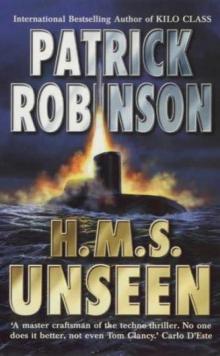 H.M.S. Unseen am-3
H.M.S. Unseen am-3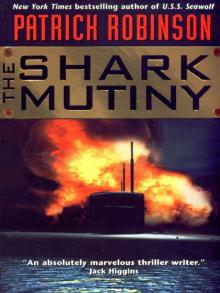 The Shark Mutiny (2001)
The Shark Mutiny (2001)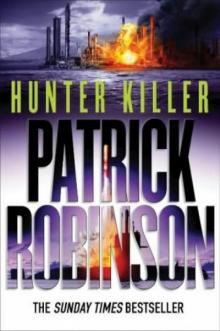 Hunter Killer am-8
Hunter Killer am-8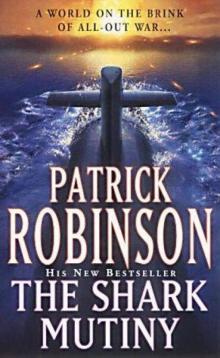 The Shark Mutiny am-5
The Shark Mutiny am-5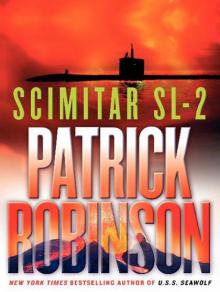 Scimitar SL-2
Scimitar SL-2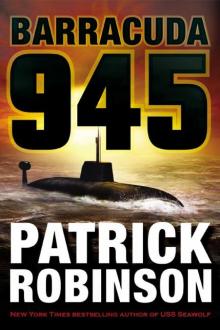 Barracuda 945 am-6
Barracuda 945 am-6 Hunter Killer
Hunter Killer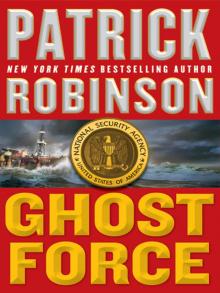 Ghost Force
Ghost Force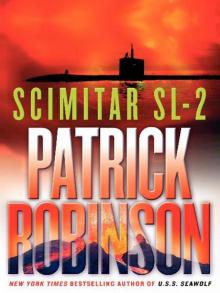 Scimitar SL-2 (2004)
Scimitar SL-2 (2004)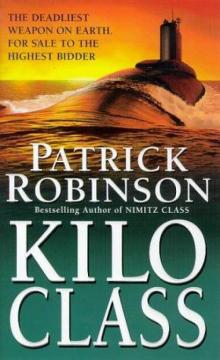 Kilo Class am-2
Kilo Class am-2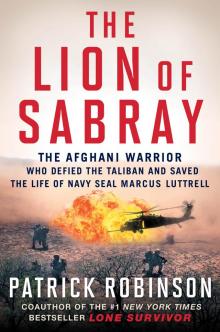 The Lion of Sabray
The Lion of Sabray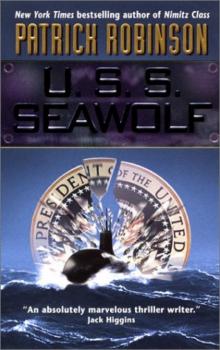 U.S.S. Seawolf am-4
U.S.S. Seawolf am-4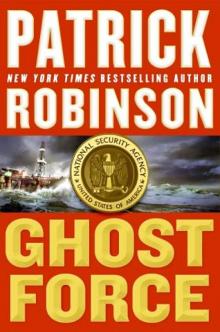 Ghost Force am-9
Ghost Force am-9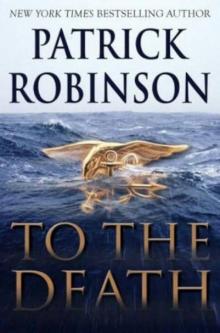 To the Death am-10
To the Death am-10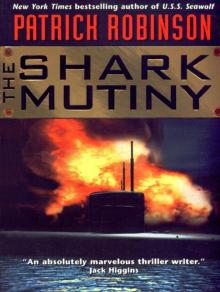 The Shark Mutiny
The Shark Mutiny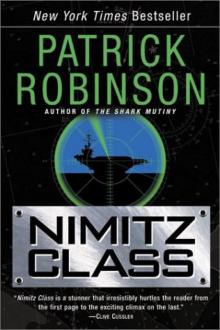 Nimitz Class am-1
Nimitz Class am-1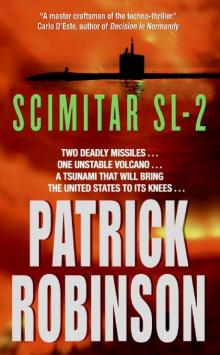 Scimitar SL-2 am-7
Scimitar SL-2 am-7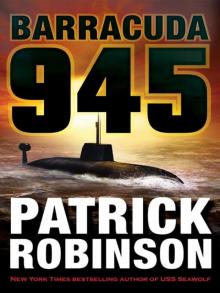 Barracuda 945
Barracuda 945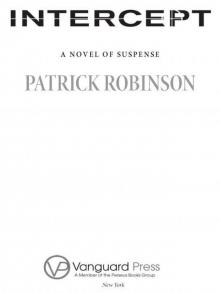 Intercept
Intercept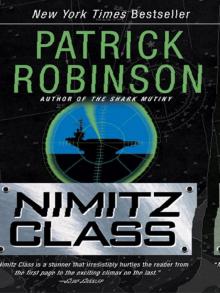 Nimitz Class (1997)
Nimitz Class (1997) Kilo Class
Kilo Class Kilo Class (1998)
Kilo Class (1998) Diamondhead
Diamondhead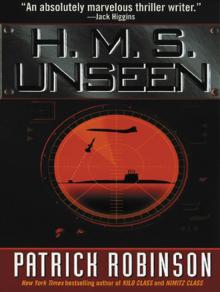 H.M.S. Unseen
H.M.S. Unseen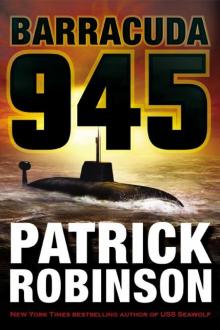 Barracuda 945 (2003)
Barracuda 945 (2003)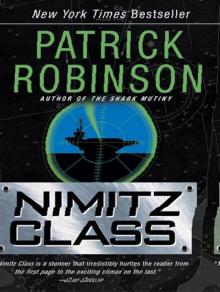 Nimitz Class
Nimitz Class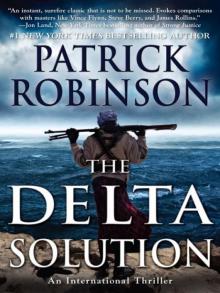 The Delta Solution
The Delta Solution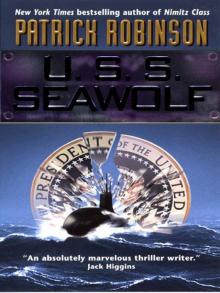 U.S.S. Seawolf
U.S.S. Seawolf